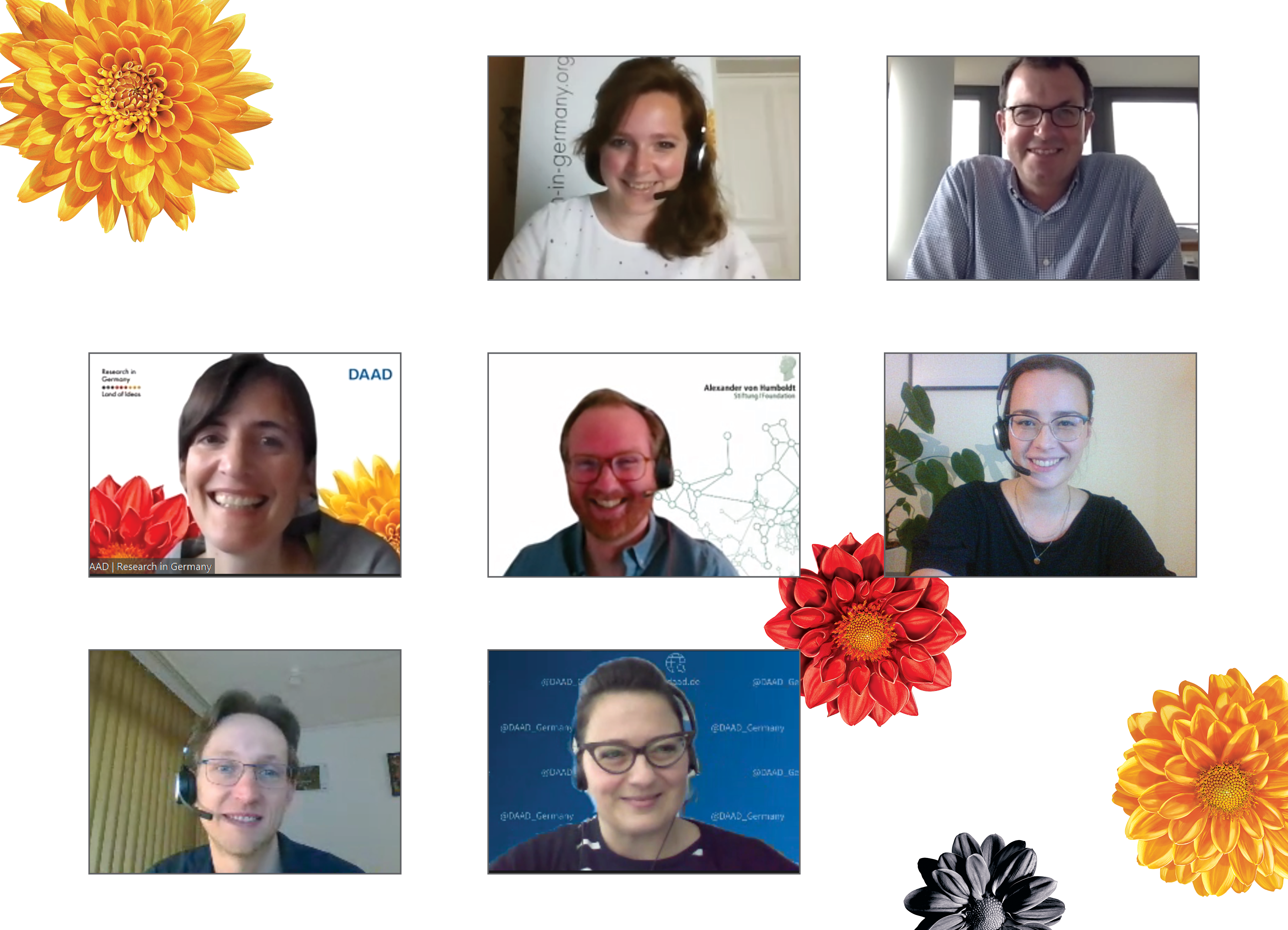From Bonn to Portorož and around the world – “Research in Germany” at the 8th European Congress of Mathematics

“Research in Germany” experts providing online advice on mathematical research funding in Germany
© DFG
(30.06.21) The “Research in Germany” initiative took part in the 8th European Congress of Mathematics (8ECM) with a virtual exhibitor stand, an information seminar on funding programmes for mathematicians and individual consultation sessions.
“Good things come to those who wait” – this sums up the preparations for the 8th European Congress of Mathematics. Originally planned for the summer of 2020, the team of conference organisers was forced to postpone it by a year in view of the COVID-19 pandemic, in the hope of eventually being able to host it locally in Portorož on the Slovenian Mediterranean coast. The development of the pandemic put paid to these plans as well, however, and the conference was ended up being held from 20 to 26 June 2021 in almost entirely virtual form. While some public events were streamed from Portorož to the world, other parts of the conference, including the exhibitors’ hall, took place exclusively virtually.
Under the auspices of the DFG, the “Research in Germany” initiative once again participated in the meeting of mathematicians in Europe, which takes place every four years.
An exhibitor page embedded in the conference website presented the most important facts and figures about Germany as a research hub, featuring the mathematics research scene in particular of course. As always, this was supplemented with a variety of information videos and brochures presenting career and funding options in Germany to international researchers.
Even in this virtual setting, the aim was to ensure that interpersonal dialogue and individual consultation was not neglected. In an online seminar, representatives of the Alexander von Humboldt Foundation, the German Academic Exchange Service and the DFG presented various funding programmes that are available to support or initiate an academic career in Germany. Further “Q&A sessions” were offered throughout the conference week, enabling international researchers to address their very specific and personal questions to the funding institutions.
It was particularly pleasing to have some mathematicians speaking directly from Portorož. In this way, the “Research in Germany” team was able to pick up some of the local congress atmosphere after all and move at least mentally from the various home offices in Bonn to the Slovenian Mediterranean coast.